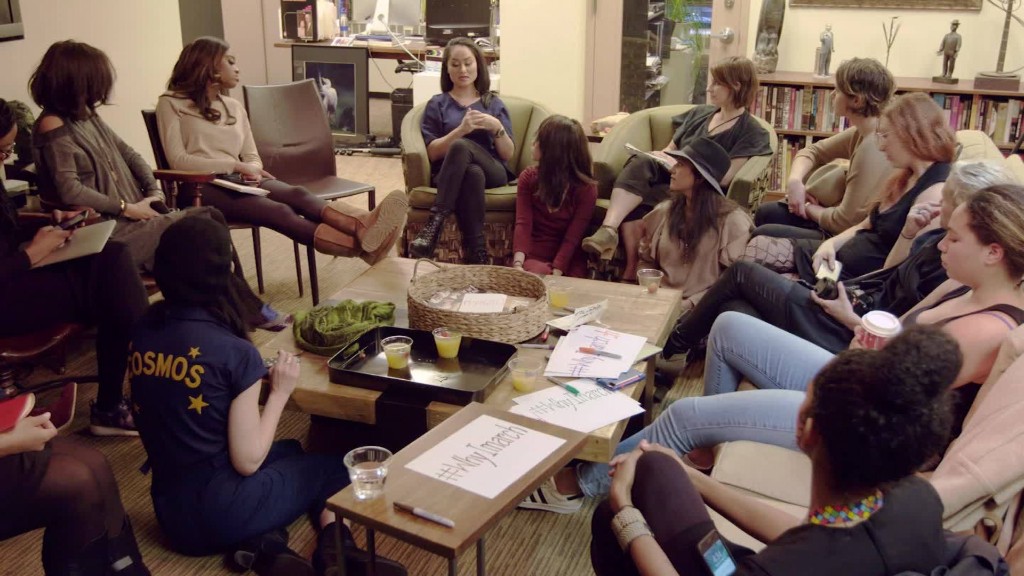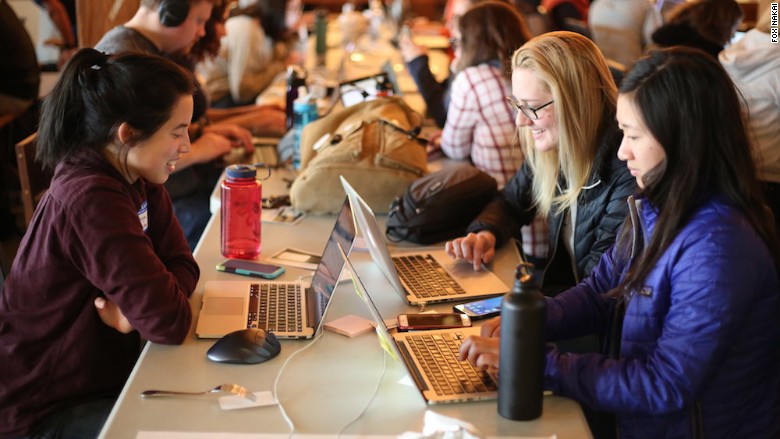
Hackathons in Silicon Valley are hardly a novel concept. But one this weekend focused on "hacking" something unexpected: abortion access.
More than 200 engineers, designers and activists gathered in San Francisco for the second annual Abortion Access Hackathon. Over the course of three days, teams built a variety of abortion-centered apps: a platform for people to talk about abortion and receive support; a game that illustrates the process women go through in each state; and a tool to identify Facebook friends who live in abortion-restrictive states and send them a script to read to their local representatives.
"This is definitely a way to empower people in the tech community," Somer Loen, a co-organizer of the Abortion Access Hackathon and a mobile game designer, told CNNTech. "[We want to] create an inclusive space and have people go back to their offices and bring activism back with them."
Somer organized the event with her twin sister and fellow health advocate Emily Loen, as well as startup human resources manager Kate Bertash. They said the hackathon created a place for embracing and supporting ideas that are often considered taboo to discuss in the workplace.

While abortion access may not seem connected to tech, the organizers say it's ripe for assistance from Silicon Valley. Largely volunteer run, these programs don't have the capacity to build all the technical services they need to serve communities. They provide information and support to women as well as transportation, childcare, and financial services.
Hackathon participant Colin Fleming, a volunteer for the D.C. Abortion Fund, traveled to San Francisco for the event. His group of four created an automated system for case managers to directs patient to the proper care. Case workers give the software information like the patient's location and pregnancy data, and it connects them with the nearest abortion clinic. The group plans to open-source their tool so any organization can use it.
Related: Why disrupting health care can be tricky
Women increasingly rely on organizations like these, as state governments consider curbing reproductive health rights. A proposed bill in Oklahoma would require women to obtain written permission from their partner before getting an abortion, and one in Texas would let doctors decide whether or not to tell pregnant mothers if their fetus has severe disabilities.
Meanwhile, advocates say abortion access represents a prime opportunity for tech companies to reach out to women and minorities in a material way. Lack of abortion access largely affects women of color and low-income communities, Lindsay Rodriguez, communications manager for the National Network of Abortion Funds, told CNNTech.
"The tech industry has a reputation for not being friendly to women or people of color," Rodriguez added. "Abortion access is a place where the tech community can plug back in some of the resources that they have into making things better for people."
Related: Sheryl Sandberg criticizes Trump rule on abortion
But the topic remains taboo. The Loen sisters held the inaugural 2016 hackathon at University of California, Davis, after tech companies and a Google engineering meetup declined to volunteer space because the event was too controversial. This year's event was hosted by GitHub, which was the first tech company to offer. (GitHub itself faced criticism in 2014 when a prominent developer quit citing sexism.)"
With each Abortion Access Hackathon, interest grows.
"We did the first one, and there wasn't the same sense of urgency," Somer Loen said. "I think people are a lot more comfortable about being incredibly vocal about resisting this administration. You're not going to be the weird one for being interested in politics anymore."

